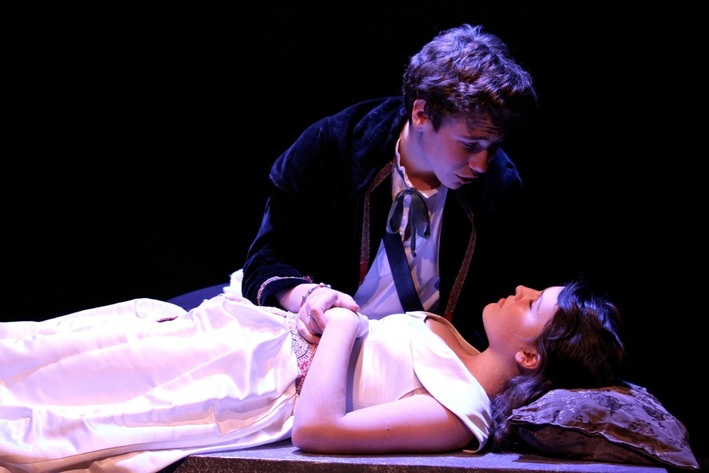Our Check-Out Policy
You don't need a library card. If you like one of our scripts, you can have it. It's free! You can download it, or print it out directly. (We recommend printing it, because then you can make your own master script, and write your own notes and changes right on it. ) Just, make sure your company and your audience know where you got it from. Acknowledge us in your program. Get in touch with us. We're here to help you. We want your actors to have the best Shakespeare experience possible! Consider inviting one of us to come assist your production. Be sure to read the script over and over before you start rehearsals: even if we have done most of the editing work already, you (the director) have to know the play better than anyone else in the room!
What You Will Find on the Shelves
If you browse here, you'll find useable Shakespeare scripts. We have acted them, and they work. Most have been slightly abridged—they are anywhere from 55% to 90% of the original, but, in most cases, you'd have to be a dedicated scholar to see where the cuts have been made. You won't find any simplified language: no "Shakespeare-Made-Easy," no "Bard in Modern Language," adaptations in verse or prose, or summaries of plots. But, you also won't find complete texts, as we find it counter-productive to mount a four-hour total "Hamlet" with a teen-age cast, in six short weeks or less of after-school rehearsal, or in a brief summer camp.
There are other libraries where you can find accurate complete Shakespeare texts for your use.
You'll discover that our scripts are divided into scenes: Scene 1, 2, 3, and so on. For performance purposes, the traditional five-act structure is not visible. This makes it much easier for you to devise a rehearsal grid that folks can quickly understand--important in camps with multiple scenes being rehearsed at the same time, and also clearer and more useful when dealing with families trying to juggle after-school schedules.
One editing technique that we frequently employ is to divide up a longer speech strategically, as in, "Why not give part of Lord Montague's speech in Act I, Sc. 1, to his wife? She is Romeo's mother. Why have her just standing around? Is she mute? Why not have her talk to Benvolio, too?"
By splitting some speeches (without sacrificing their sense), by dividing some characters into two, and by sharing some lead roles within a performance, our versions aim to increase the ensemble nature of these plays for new young actors and to make rehearsals much more inclusive and efficient, all while maintaining the absolute integrity of Shakespeare's words. We have even occasionally split up some of Shakespeare's most famous monologues, making them a meditation shared among the two, three, or four actors sharing a role.
There are other libraries where you can find accurate complete Shakespeare texts for your use.
You'll discover that our scripts are divided into scenes: Scene 1, 2, 3, and so on. For performance purposes, the traditional five-act structure is not visible. This makes it much easier for you to devise a rehearsal grid that folks can quickly understand--important in camps with multiple scenes being rehearsed at the same time, and also clearer and more useful when dealing with families trying to juggle after-school schedules.
One editing technique that we frequently employ is to divide up a longer speech strategically, as in, "Why not give part of Lord Montague's speech in Act I, Sc. 1, to his wife? She is Romeo's mother. Why have her just standing around? Is she mute? Why not have her talk to Benvolio, too?"
By splitting some speeches (without sacrificing their sense), by dividing some characters into two, and by sharing some lead roles within a performance, our versions aim to increase the ensemble nature of these plays for new young actors and to make rehearsals much more inclusive and efficient, all while maintaining the absolute integrity of Shakespeare's words. We have even occasionally split up some of Shakespeare's most famous monologues, making them a meditation shared among the two, three, or four actors sharing a role.
